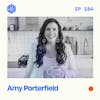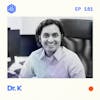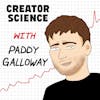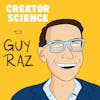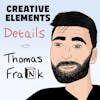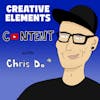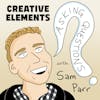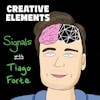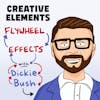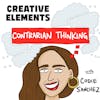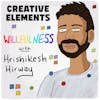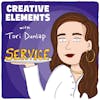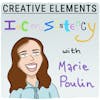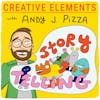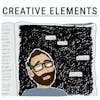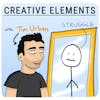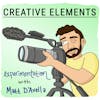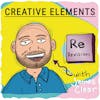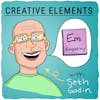![[BONUS] Talking about my money story and the MOAT Method on the Danny Miranda Podcast [BONUS] Talking about my money story and the MOAT Method on the Danny Miranda Podcast](https://images.podpage.com/https%3A%2F%2Fmegaphone.imgix.net%2Fpodcasts%2F73ef36c0-c498-11ec-ba01-8b0e7ef1d955%2Fimage%2FShow_Artwork.jpg%3Fixlib%3Drails-2.1.2%26max-w%3D3000%26max-h%3D3000%26fit%3Dcrop%26auto%3Dformat%2Ccompress?auto=format%2Ccompress&w=100&s=8ecaab327be839c1e2d9d0360df5b57d)
[BONUS] Talking about my money story and the MOAT Method on the Danny Miranda Podcast
Play EpisodeUnveiling my brand new framework for helping people become professional creators
To continue to celebrate our 100th episode this week, I’m airing a second interview with yours truly this week.
This interview came from the Danny Miranda Podcast, where I appeared as a guest just last week. I thought Danny did an excellent job of interviewing and asking questions that I’m not often asked. Since this episode covers a lot of new ground, especially in comparison to my interview earlier this week, I asked Danny if I could share it on my feed as well. And he was kind enough to oblige.
In this interview, I talk about how to create unique messaging, my brand new framework for creators which I call the MOAT method, what it was like to work with Pat Flynn, how his voice has actually changed over the years, and much more.
Watch this interview on YouTube
(0:00) Intro
(0:25) How Jay helped his dad plant trees
(4:30) Why Jay's 1 year of journalism was his most impactful
(6:43) Inverted pyramid (style of writing)
(10:55) Turning blog posts into books
(14:05) "Lifestyle of an author"
(17:13) Timeless principles of creators (The MOAT Method)
(22:43) Messaging as a creator
(24:47) Working with Pat Flynn
(30:02) The highs and lows of being a creator
(35:12) Living on $24,000/year
(38:00) How does it feel to look back on it?
(39:50) Winning a negotiation
(41:50) Origin of money story problem
(43:20) How to get over the money story?
(44:22) Jay's podcast changing his money story
(46:54) Jay's silky smooth voice
(51:20) Day-to-day energy levels
(52:34) Work like a lion
(54:23) Repurposing ideas
(58:40) Cold emailing (The Rule of One Scroll)
(1:03:13) Growth for podcasters and creators
(1:11:24) Connecting with Jay
Join the Creative Companion Club
Subscribe to Creative Companion
***
SPONSORS
***
IF YOU LOVE CREATIVE ELEMENTS
Follow Creative Elements on Instagram
Subscribe to weekly episode emails
Leave a review on Apple Podcasts
***
ABOUT JAY CLOUSE
Subscribe to Creative Companion
***
FOR PODCASTERS
Enroll in my podcasting workshop
Enroll in my course on podcasting, Podcast Like The Pros
***
PODGLOMERATE NETWORK
This show is a part of the Podglomerate network, a company that produces, distributes, and monetizes podcasts. We encourage you to visit the website and sign up for our newsletter for more information about our shows, launches, and events. For more information on how The Podglomerate treats data, please see our Privacy Policy.
Since you're listening to Creative Elements, we'd like to suggest you also try other Podglomerate shows surrounding entrepreneurship, business, and careers like Rocketship.fm and Freelance to Founder.
Learn more about your ad choices. Visit megaphone.fm/adchoices
Jay Clouse 00:00
Hello, my friend. Welcome to a special bonus episode of Creative Elements. To continue to celebrate our 100th episode this week, I'm airing a second interview with yours truly. This interview came from the Danny Miranda podcast where I appeared as a guest just last week. I thought Danny did an excellent job of interviewing and asking questions that I'm not often asked. And since this episode covers a lot of new ground, especially in comparison to the interview from Tuesday, I asked Danny if I could share it on my feed here as well. Thankfully, he was kind enough to oblige. In this interview, I talked about how to create unique messaging, my brand new framework for creators, which I call the moat method, what it was like to work with Pat Flynn and the team at Smart Passive Income, how my voice has actually changed over the years, and much more. If you liked this episode, be sure to check out more episodes from the Danny Miranda podcast and let him know on Twitter, he is @heydannymiranda and I am @jayclouse go ahead and tag us both. Let us know that you're listening. And we'll get to that full interview right after this.
01:07
Interesting people thought provoking conversations nutrition for your brain journey through the minds of the world's top performers and discover what it really takes to achieve your highest version. This is the Danny Miranda podcast.
Danny Miranda 01:26
Jay, thank you for coming on the show. Really grateful, honored and appreciate you coming here today. And excited to talk about a wide range of your history here today.
Jay Clouse 01:37
Oh boy wide range. Yeah, man. Excited to be here. Thanks for having me on. I've really admired the way you put yourself out there on Twitter. And what the show so excited to have a chance to chat one on one in real time here and should be fine.
Danny Miranda 01:49
Yeah, so 10 cents for every tree you planted?
Jay Clouse 01:57
Yeah, yeah. Wow. Okay, so that is how I bought my first TV and my GameCube. Growing up, we didn't have cable, we weren't allowed to have cable. And we also didn't have video games until my dad bought us each my sister and I a Gameboy. And that was cool. But we didn't have console until I was able to buy it for myself. And so to encourage me to help him out and spend time with him. I helped him plant trees in these fields on both sides of our house that were previously like crops. But he joined my dad joined a government reforestation project to plant a bunch of trees in the area. And gosh, I don't know how many trees it takes at 10 cents a tree to make enough money to buy a 27 inch TV from Walmart in a game queue. But that's how many trees I planted?
Danny Miranda 02:52
Well, how I understood it is that at some point, he broke up the farm into two sections. Because of the reforestation project, like was that, is that how it worked?
Jay Clouse 03:06
No, we, we lived on a farm. And you know, we had like, the home and there's a pond in the backyard, and he has a barn. And then on both sides of the home, there were already fields that were crops that were rented out to farmers for a really long time. But in part because I had really bad allergies. It was like not great to have crops and you know, harvesting happening around us. So I don't know why my dad decided that the pathway was planting trees, you know, like the government paid him to do that. So there's probably some money in doing that and probably recouped some of the losses from not renting that land to a farmer. And I think the deal is like after 25 years or something, you can do whatever you want with those trees. But he's just meticulously kept those, those growing forests on the side of our house. And it's pretty wild to look at it. Because every time I go home, it's like, wow, these things are huge. Now, you know, I planted these when I was a kid.
Danny Miranda 04:05
Yeah. It's really cool to see how if you just plant the seeds 25 years later, it actually turns into something that's massive. But take me through the process of was it a sense of I'm planting these trees, helping my dad on the farm? I don't want to ever do something like this. So I'm gonna go to the internet, or was there a dichotomy where you say, Okay, I can't be doing this forever. Like, take me through that journey of figuring out that you maybe didn't want to be a farmer in your life.
Jay Clouse 04:39
Well, I don't think I ever wanted to be a farmer. And even you know, my parents weren't really farmers, like we lived out in the country. You could call our home a farm, but my parents were both teachers. So the bigger distinction that I had to make was do I want to become a K through 12 teacher like my parents, my sister, her husband, my cousins, my aunts, my uncles. Like my entire extended family, the classes were all teachers. And it was kind of just like a, it's like a presumed thing. But it was like the family business in a way. And the one thing I knew going to college is that I didn't want to be a teacher. But you know, come now to 2022. I'm essentially a teacher, in this online world of education. So it's interesting to see that come full circle. But when I went to college at first, I didn't know what I was going to do. I knew I was most interested in writing. So I was exploring that, mostly through journalism, then got sucked into the business college and wound up writing and teaching. So you know, some things I feel like you just can't stop.
Danny Miranda 05:42
Yeah. So I was doing research for this. And I found out that the one year of journalism you took was the most impactful in your college career. Why was journalism so impactful for you?
Jay Clouse 05:54
Oh, yeah, like not even close. My history with journalism was, I went to Ohio State, and I didn't know what to major. And I think it's like irresponsible to expect an 18 or 19 year old to know what they want to do with the rest of life anyway. But you're like, put under so much pressure to declare this major, there's intention for your career for the rest of your life when you're 18 or 19. So I went into the undecided program at Ohio State, which is actually called exploration, which is fantastic branding. And my my guidance counselor in exploration, basically told me like, congrats, you made a choice, but we can't decide for you what is good for you. You need to explore stuff, you need to try stuff out. So what do you like? I said, Well, I like writing. So she recommended that I take an independent study with the student paper at Ohio State is called the lantern. And so my expectations with that independent study were like, write three pieces that got published in the student newspaper, in one quarter. Yeah, and one quarter. And that would give me one credit. It was like this really basic thing, but I loved it. And I found myself just hanging out in the writers room, constantly, like they would, there was a faculty advisor, and there's a tip line, and people would call the tip line, he would answer. And if it was a good story, he'd go out into the writers room and say, Hey, here's a developing story. Does anyone want to go out and cover it? And whoever was kind of sitting in there had first dibs at it. So I would just sit in there all the time. And that led me I covered like the riots for like the Egyptian riots back in 2011. It allowed me to cover Terrell Pryor's tattoo gate fiasco at Ohio State, like call his lawyer, which allowed me to cover the football team, as a freshman and sophomore, which they don't let people do. And all of that just taught me so much about writing, in particular, the inverted pyramid style of writing. And I still use that stuff all to this day. But most of the stuff I learned in the business college like I don't,
Danny Miranda 08:01
What's the inverted pyramid style of writing?
Jay Clouse 08:05
Inverted Pyramid is, if you think about an inverted pyramid, like literally visualize that a pyramid that's upside down. The base of the pyramid is the most important details of a story, the who, what, when, why and how. And the idea of when you're writing a story for the newspaper, you actually want to lead with the most important, most interesting information, which is opposite of what you learn with creating online a lot of times a lot of times online, it's like you want to keep attention by holding the payoff until later and later in the video. So you have people watching for a long time, you can monetize with ads. But with the newspaper, you wanted all the most important details right up front, because there were literal physical space constraints, to newsletter or to print. Because you had to make all these stories actually fit on the page next to each other in the form factor of a newspaper. So when they had problems getting things to fit, they knew they could go to the end of a story and just cut off a sentence or a couple sentences or a period or a paragraph. And nothing was really lost because all the most important details were up front. But they also taught you to be like ruthlessly. Like you would just destroy all the fluff in your piece. Nothing didn't have a place everything that you write should have a reason for being there. You don't need crazy adjectives or all this flowery language, like, get to the point tell me what I need to know. And that's still really good writing advice today. Unless you're trying to write like fiction or narrative nonfiction, something longer form, you really want to be concise.
Danny Miranda 09:38
That's so fascinating about the difference between keeping attention online versus when the newspaper version of keeping attention which is just a hook people write in which an important hook is is essential for both but the payoff how you describe is different and I've never really thought about that. And it leads me to ask how you've thought about taking that if you've taken that style to online medium and seen how it would fail, or if you how have you used that inverted style, and had to navigate through that an online medium.
Jay Clouse 10:20
So the feedback you would often get from an editor, if you didn't do inverted pyramid style writing well, is that you were burying the lead in the lead is like the the most important idea that people need to know or like the most attention grabbing piece, they would say you had three sentences before you got to the point of why people should care. Same thing is true. If you're writing especially on Twitter, you know, like we hear a lot about threads and the hook right now you can't bury the lead, you need to start with something that grabs people's attention. So the more that you lean into this inverted style pyramid of an inverted pyramid style of writing, you will get attention because you'll stand out as someone who is just giving you what you want right away. And you can still go pretty in depth and long form and do that well. But I think, you know, there was this period of time, which I think we're probably still in where people would write a book around what could be like a blog post. So to take like, an idea that's pretty explanatory in 2000 words, and then turn that into 250 pages, you kind of have to add in some fluff and some yada, yada, when you can get the idea from the title, the table of contents and a couple of chapters. But the people who just write very densely not dense in a way that's like hard to read, but dense in the way that every line has a purpose and is worth reading. Those writers really do stand out online, because there's no waste. It's not it's not like junk food, you know, and you're not like saying, like, get to the point get to the point, everything is like yes, yes. Okay, and you're just following along. And it's a really fast read.
Danny Miranda 12:00
On the topic of turning books into or blog posts into books, I kind of want to push back here and say that, I think it's, it's amazing, that blog post turned to books, when you think of the statement. Normally, it's like a negative connotation. But think about how amazing it is that there are there are people first that the blog post is validated that this is a good blog post. And then there are people who never saw the blog post, and now get to read the blog post in a longer form. So I've never really thought about it as a positive thing. But just you talking now kind of framed it as such to me?
Jay Clouse 12:37
Well, I actually think it's like a negative thing. Because the way that I see it most often is this thing, like books, writing in general, is a means for sharing information. It's knowledge transfer. And to me, you want the most efficient knowledge transfer possible. If you're in it for knowledge, if you're in it for entertainment, you might want something to be longer. But if you're in something for knowledge transfer, you want that to be as efficient of transferring that knowledge as possible. There were a lot of books that have been written the last two decades that were made into books simply because the author wanted to have a book and have the opportunities that the book unlocked. But the actual information they're trying to transfer could have been transferred in a much smaller form efficiently, you know, as a blog post?
Danny Miranda 13:28
Yeah, I think it's, it's one where the positive examples of that at least two may pop out right away. For example, your friend James clear atomic habits, those were blog posts that he turned into a book and how amazing is that? The Subtle Art of not giving a fuck by Mark Manson similar thing, the psychology of money by Morgan Housel, same idea. Those are all incredible books that I'm so happier in the hands of more people. But that started out as blog posts. There are also a lot of blog posts that probably shouldn't be books. But I guess my question to you is, how do you figure that out?
Jay Clouse 14:04
Well, it's, if you just were honest with yourself as a writer and said, what do people need to know? What do I need to transmit? And how can I do that most efficiently? If it doesn't need to be a book, don't make it a book. A lot of the books you just listed off are an amalgamation of many blog posts, actually, you know, like atomic habits is a great example. James was writing his newsletter for years. And each one of those pieces were discrete, still, like dense ways of transferring some concept to you and atomic habits was this collection of all of those different concepts. So it wasn't like hey, here's what an atomic habit is. It was let me teach you a process of building atomic habits which required a bunch of different smaller understandings of specific frameworks and, and ideas. But there are a lot of books that are you know, I have a point of view, I have a specific thing I want to say. And I'm going to tell it to you in 250 pages, even though I could make my point of view clear in about 1500 words.
Danny Miranda 15:11
Yeah. And that must annoy you too, so much as a writer, where you tried to master this art of writing. And like, my question to you is like, when, when did you know you wanted to be a writer?
Jay Clouse 15:31
I don't know, when I decided I want to be a writer. I mean, the, the feeling that I've had for a long time is that I want the lifestyle of an author, like I would love to have my major creative output be a book every couple of years. And everything I everything else I do is gravy, but really where I make my money, and where I need to focus, and the only thing that I need to focus on is writing the books. I'm not quite on that path yet. But I've had that feeling probably since high school. And it started with my AP English class, why I really loved was we had these assignments where we would read books or a short poem. And then we would have to analyze the meaning behind it as a fun exercise, and a lot of times you come out of it with like, these projections of what you think the author meant to say. But really, the author is probably just an artist with a good sense of intuition. But it was a really fun exercise. And that helps me get a scholarship to Iowa State. That's what told me I was good at writing and that I enjoyed doing it. But it probably wasn't until about 2017 2018, that I really started to think of myself as a writer. Yeah.
Danny Miranda 16:50
It's funny, you mentioned that you haven't really thought about doing that yet. But it's funny, because you've also mentioned that creative elements, when you started it as a way to potentially have a book in the future, like even the way you frame different titles and the way you navigate you set yourself How could I potentially make this into a book. So it's funny that you're kind of planting seeds for yourself to go back to where we started? In terms of creating that reality?
Jay Clouse 17:26
Yeah, I still want that reality. But what I'm not willing to do is just spend a year or multiple years writing a book for the sake of writing a book, because that's what turns into these books that are 250 pages of, you know, what could be 1500 words. So I'm keeping my eyes up and creating apps creating optionality and you know, the opportunity for a book to emerge from my work. But you know, today, the work that I do is helping people become professional creators online. And the, the tactics and the strategies from that are so fluid, the change so fast, trying to write and publish that type of thing as a book isn't practical. So now, I've been spending a lot of time lately stepping back and saying, Okay, what are the things that won't change? Because I find myself often looking at bands and musicians from decades ago, and seeing the the corollary of their approach and how that applies to creators today. So there are timeless principles in How to Become a Professional creator, that were possible before the internet, it's been more, you know, it's been easier to do and more accessible with the Internet. But there are timeless principles there. So I'm trying to spend more time thinking about those, and building some, some thought were and some content behind that, because that feels more evergreen, and, you know, sustainable over a long period of time.
Danny Miranda 19:01
Yeah, I could even imagine the title now creative elements, the Timeless Lessons or the timeless attributes of creators. So so let's go through a few of them. What, what do you think are the most important attributes that a creator can have that that had been tested long term,
Jay Clouse 19:24
I actually have a working framework on this that I haven't talked about haven't written about yet. So let's dig into it. This is crazy. I've never talked about this. So I call it the moat method, M O A T. Because as a business owner, you're constantly looking to build a moat, to protect your business to protect your competitive advantage to have something that you're building that is also secure and enduring over time. So step one of the moat method to building your creative platform. You need to design your moat. You need to understand what is this thing that's going to unique to me, and moat is an acronym. So the M stands for message. O stands for online presence. A stands for authority. And T stands for trust, you need to say, what is the message that I have that other people aren't saying, What is this unique idea that I'm sharing to help a specific person, accomplish a specific thing? online presences, you need to have some way for people to interact with you. It's like your user interface as a creator. It's like, how do I subscribe your thing? How do I read your writing? Authority is your unique frameworks. Your style of thinking is like this method. I'm telling you right now, it's your unique framework around the message that you want to share. That shows I'm the person to talk about this thing. And here's why. And then trust is all about relationships. How do you actually build relationships with people at scale? Is it email? Is it podcast? Is it SMS? I'm thinking about that in terms of specifically an owned audience platform that you control. So people say I want to hear from Jay and no third party can say, well, we're changing our rules, and you can't hear from Jay anymore. So that's step one, design your moat message online presence, authority and trust. Step two, once you've designed your moat, and shown what makes you unique, you need to dig your moat. Dig is also an acronym for discovery engine, income engine and growth engine, you need to choose or decide or strategize on how people will discover your message for the first time. And to me, a lot of that is like social media or YouTube where there's organic traffic, that they can find your stuff. Income strat or income engine is your kind of your business model and your products strategy, what kind of products you'll develop, what your model looks like, what type of non product based revenue streams that you have. And then G is growth engine, how to actually grow the number of people finding your business. And I have about five strategies for that as well. So that's the that's the book right there, Danny, that is the mote method of becoming a professional creator.
Danny Miranda 22:09
That is awesome that you have that teed up and ready to go. On the the first part that you talked about the message online presence, authority and trust. I'm curious, which of those do you think you do best? And which of those do you think you do that you need most improvement?
Jay Clouse 22:28
I think I do online presence and trust best. And why I really need improvement is message. Not just having a message. But articulating it. The people who grow the fastest are the people who have a unique message that people want to hear but haven't articulated. And that person is also the right person to be sharing that message.
Danny Miranda 22:49
Yeah, and I've heard you also talk a little bit about like finding your luck, the place where you get lucky. And it's like your first or something. And I feel also like having a unique message or a message that people want to hear but don't know that they want to hear helps increase your luck.
Jay Clouse 23:10
Yeah, for a while I was calling this message idea, like your lighthouse, because to me, it is what attracts people to you like they're wandering around their lives, and there's just something that is under their skin, or that they're trying to accomplish, and they can't quite get there. And they see your lighthouse and they start following your light towards that thing. Because that's what it needs to feel like to people, they need to feel like finally, this person is the person to help me solve this thing. That's what creates trust affinity relationships. And if you are one of 10 lighthouses saying the same thing, you know, you're only going to get 1/10 of the results or actually practically, you're going to have a tiny part of it because the first lighthouse, the biggest lighthouse is going to get 90% of the results.
Danny Miranda 24:00
Yeah, that's a really great analogy. And so message is also one area I feel I struggle with as well. And so like how does one go about figuring out a message that aligns with them?
Jay Clouse 24:15
Here's, here's the thing. This is the this is the truth that I didn't want to accept when I was younger, and nobody wants to hear. Your message comes from life experience. And you might have some unique experience when you're really young that helps you develop a different way of looking at things that's really valuable. But the people who have a unique message that grows and spreads quickly, the people you look around, you're like wow, they really sprang up fast. Take a tick, Nick Huber on Twitter talks about you know, self storage businesses. That was a perspective that people weren't sharing much. And not only did he have that message, but he had the experience like a decade worth of doing this. So he has authority and he has this job. can't store of content to tap into, he has 10 years of experience to tap into. What I see a lot of people doing is aspiring to be a creator, which is great, like, same. But they don't have a unique experience or unique message that is attractive to people yet. Because if you don't stand for something different if you don't have some unique way of thinking about things or doing things, why would anybody be paying that close of attention? Besides they like you? And that's fine, but they're not going to just like buy a product all the time or, or, you know, ask for coaching services all the time, like your message is what makes you different. And often that comes with time and experience.
Danny Miranda 25:46
I like that that makes a lot of sense. And speaking of time and experience. I'm curious how Pat Flynn has impacted your journey. Because Pat Flynn, when I think of time and experience, at least of the online content game, he's one of the first people that comes to mind and you've had the fortune of working with him. So what's Pat Flynn like to work with?
Jay Clouse 26:08
Pat's awesome, Pat is exactly how you would expect him to be. Admittedly, I did not follow Pat's work very closely. He got started in about 2008. And I was aware of the fact that there was some guy on the internet who pioneered the open source income reports of their online business. And I knew that was like a big thing that started a big trend. And that was Pat. And I didn't actually know his name that well, or nor know the business that well. Just out of, you know, pure ignorance, to be honest. But what's crazy my time working with Pat, I learned a ton from him, I learned a ton from our team, super, super talented people with a lot of experience, Pat taught me a lot about the value of relationships. And I really could see the way he fostered relationships with people, his his audience, but also like his friends and peers. It was, it was a really, really great experience. And the biggest thing that I took away from it is Pat inspired so many people, you know, like so many of the creators today that are operating at a high level point back to pat and his income reports and his affiliate business challenge, they did something that link turned into like this, I think it was called, like online business challenge or something where he like, did a one on one battle with somebody else to see how quickly they could grow a business to like $1,000 per month in affiliate revenue or something. But like, he had a huge hand in ConvertKit, becoming what it was today, because he helped bring them a lot of customers. It was really, really impressive. His reach is just incredible.
Danny Miranda 27:53
What's something you changed after working with him?
Jay Clouse 27:57
I started thinking more about relationships. I mean, there's some like really tactical things like, I changed the way that I did custom tags and ConvertKit. You know, like some really tactical stuff like that when I'm thinking about scale. But really, the biggest takeaway was relationships. And I can just see how powerful it is to form a group of peers, who are all at kind of the same level, because I think the trap that I've been in for a long time, is all look up to other creators like James or Ryan Holiday, or David Parral is someone even newer, but that's closer to my age, who were a few steps ahead of me with their, you know, creator business. And I'll think, gosh, if I could just become that person's friend and be welcomed into the fold, like, my life would change. What I'm realizing is, these people actually just had peers who had the same level as them, and they all helped each other succeed. And then they were all the cohort. And all these people are trying to get into that they're like, No, we we battled through, you know, a decade of toughness with each other. And like, we're good. Sometimes, you know, they'll reach a hand out, and that's great. But really, the value is in building really strong friendships with people who around you now who don't have an agenda, other than you know, they're trying to do their own thing and succeed and they want to see you succeed, and it's all very genuine.
Danny Miranda 29:24
Yeah, that's so true. The importance of who are the people around your level who you can connect with organically. And in that you also touched on something that Jay Shetty, has actually mentioned before, which is like the idea of believing that there's one person out there who can make his career and I've always thought that's just such a fascinating concept to believe that and he's like, I still believe that today. And when I recognized that I was like, oh, like, there isn't one person that can make my career like it's many one People edits relationships. And so Does anything come to mind there? Like, does that resonate?
Jay Clouse 30:05
Yeah, for sure. I think often we don't know who that person is, like we think we do, we think is this one person, and we're so fixated on if I could just get a response to my email, and we think is that one person, but the great thing about being a creator in creating content is every piece of content you create as a lottery ticket, anything you put out there, you have no idea what one individual, it may strike in such a way that opens one door that you walk through, that now opens, you know, a bunch of other doors afterwards. It's crazy, like any, any big break you have, you can look back and tie that to some decision that you made, which you can usually tie back to some other decision, you know, and you can see how these things build. So creating content is just increasing the surface area of your luck. You know, people people love to say that and it's true, because you just have all these different places that people may interact with. And really great ideas, really strong messages, unique differentiated messages are really attractive to the people you're trying to attract. So it's, it's a big deal.
Danny Miranda 31:14
Talk to me about how you can succeed in a short term venture or short term, creative thing that you do, like for example, I, I had this thread go viral last week, two weeks ago, felt great, you know, got all the dopa means I got Apollo, oh, no, the Olympic medalist, gold medalists, He's liking the tweet, I got Keith Raboy liking that, too. So it's great, everything's going great. And then when inevitably happens is a week later, it's gone, the dopamine is gone. And talk to me about your journey of the highs and lows of being a creator.
Jay Clouse 31:56
Look, man, you got to, I mean, there's two schools of thought on this, and I've gone back and forth on them at different times in my life. One school of thought is the lows are really painful. So I'm just going to plain out my emotional experience to be kind of constant and not get to down with the lows not get to highs with the high. But that's kind of a boring existence, I'll be honest, and I've had that existence for most of my adult life. Though the thing is, the other way look at it is lean into the highest lien into Lowe's. You know, the sweet isn't a sweet without the sour. And, you know, that's like, emotionally taxing, but you also get the the highest emotional rewards from that. But you got to realize, if you're getting into this game, like you need to be signed up to be doing this for decades. You know, people will say, like, three years, five years minimum, but like, really, it's decades, because let's say you get that break in something amazing happens. And tomorrow, you have 50,000 subscribers to your newsletter, or 100,000 new subscribers to your YouTube channel. They're all waiting to hear from you. And you have to reprove yourself to them, you know, the game isn't over getting them to say, Okay, I'll give you a shot is not winning. It's, it's the goal is the start line, it's the starting line. So, you know, you really have to be bought into this long term. And I think you just develop a thick skin for rejection. And you have to build some sort of practice of gratitude or reflection on the things that are going well. Or you'll be in this like boring state of malaise all the time.
Danny Miranda 33:31
Yeah, I like the statement, don't practice what you don't want to become. So if you are doing something just to get attention, and it's not actually what you want to do in the future, then you're kind of wasting your time in a way because you're going to get those 100,000 new subscribers, and they're going to want you to do that thing that you just did, and you're not going to want to do it. So I think it's very important that you're weary of what you're doing.
Jay Clouse 33:56
Yeah, you need to ask yourself, what happens if it goes well? What if this goes as well as it could? What if this goes to plan? Because if you don't like the answer, then what are you doing? You know, you need to think through like if this goes really well, I expect that this will happen. And that is a future that I want to move towards. You know, I think about directional correctness more than anything else most of the time, because we're all building our own path here. If you're not, then you're going to be that 10th smallest lighthouse that gets 1/10 the results. Assuming that you're trying to build your own path. You don't really know where you're going, you don't really know what you're doing. But you can feel if you're directionally correct. You can feel like I see how the step is moving towards this amorphous, soft, squishy thing that I think that I want. And sometimes you make small changes in the direction that you have you changed tack a little bit but you feel directional correctness, and that's the most you can hope for most days.
Danny Miranda 34:53
Yeah. So talk to me about the moment when you felt the furthest away from where you We're aiming, and the moment you felt closest allied to the path that you're you think you're supposed to be traveling?
Jay Clouse 35:08
Well, before I was a creator, and I was working at a venture back startup in healthcare, I was a product manager, product leader. And I enjoyed that in some ways, but it just, it didn't feel like I was building towards me, you know, just, it just didn't. And so I left to go and freelance, essentially, even though I didn't know what that was or how to do it. And I feel like I've been on a directional path ever since then it's like, well, I don't have any income now. So what am I going to do? I guess I'll, you know, Build WordPress websites, and I'll write email copy. Well, I like the email part of this. I don't love the WordPress stuff, because now there's maintenance and people are hassling me for access to the server. And now the site's down, and I didn't expect it and have to deal with it. Let's just cut that out for my services, you know, and it's just like little changes like that all the time to say, I like 90% of what I'm doing. How do I get to 91%? Is there a theoretical point where I can actually genuinely enjoy every bit of what I'm doing? And to the extent that I can, that's what's what I'm pursuing.
Danny Miranda 36:18
When you ended that healthcare, when you when you add to that job, is that the time when you learned how to live on $24,000 a year?
Jay Clouse 36:30
No, I learned that right out of college. That was the first company that we did at a college, there was a founder who was starting a ticketing company, and he was looking for a co founder slash first employee. And I kind of fit the bill. So we we connected, and the first exercise we did was, okay, we have $50,000 in the bank, from this accelerator program that we went through what is the bare minimum, we can pay ourselves to make that money go the furthest. And at the time, you know, I'm just out of college. So my expenses were really low. It was like rent, gas food. He paid for insurance, so I didn't worry about that. So it became like, you know, $24,200 per year is what I mapped out as what I needed to live. And that's what I got paid. That was my, that was my salary for the year, which was great, because it really taught me how to live cheaply, which is a huge skill. If you're trying to build a business as a creator, like build a business on top of your content, not a quick thing to do not an easy thing to do. You can generate revenue, but it's going to take a while for it to be meaningful.
Danny Miranda 37:38
So like, what was one thing that living on $24,200 taught you that you didn't expect to learn?
Jay Clouse 37:51
A lot of the things I expected they still sucked, but they still expected them. It taught me that most of the things that I wanted, I didn't need, you know, I could just say no to it, and bad things didn't necessarily happen. It taught me that not having an office and working out of coffee shops was actually a meaningful expense on a monthly basis. Because you know, even if I go in there, and I want to sit in there for four hours, I'm not going to do that without buying a coffee. And if I'm buying a $5 coffee every day, that's $150 a month right there. So yeah, it taught me like what expenses were truly necessary and which creature comforts I didn't really need and how to get by with things that were okay. And how expensive dining and getting food out of the houses.
Danny Miranda 38:44
Fast forward to today. And it's like you, you've made, you've said you've made over $100,000 last year from your creative pursuits. And that's like a pretty incredible thing. Like, how does that feel like looking back on your $24,200 salary, doing something that you kind of like kind of didn't to now it's like, this is what you love, or at least close to the path. And like, you're at a completely different place financially.
Jay Clouse 39:17
It's great. I mean, I feel especially last year because I took that year to work alongside Pat and the team at SPI so I was on salary while still building my creative business and having the best year that my business ever had. So it was like, I had Scrooge McDuck money last year. It was wild to me. It was like anything we wanted. Yeah, let's do it. And yet my bank account still grew. It was crazy, bonkers. But I'll tell you what the problem is with learning to live cheaply. It also changes how big you think, because that salary of $24,200 When we were acquired, the acquiring company said we want to pay you 40 $46,000 to continue to run this company. And to me that was a 100% increase in my salary. And I thought this is awesome. What I should have thought is, I am still wildly undervalued. Because then when I left that company and took a job at the healthcare company, the recruiter told me Hey, for the director role, or hiring me for our salary ranges from 80,000, to six figures. And I said, Wow, that's crazy. And then I interviewed, and I didn't negotiate well, and they offered me $80,000. And I said, Well, it's still almost 100% increase from the year before, you know, and all the while I had other peers in the same level of position who negotiated better who were earning $120,000, because they knew their value better. And they also knew that the company had that budget. So I had to fight uphill against my money story, because I learned to live so cheaply. And it really ratcheted down. How big I was thinking in terms of revenue, I've really had to unlearn a lot of things and change the way I think about my value. And it's hard to do that.
Danny Miranda 41:06
When you say you negotiated poorly, what do you mean, exactly? What do you think you could have done better?
Jay Clouse 41:11
I think I could have won the staring contest. I mean, that company, any company, when they go through multiple rounds of interviews, and you know, like, you're the candidate they want you, and it comes down to negotiating on salary, they've invested so much time and effort into you being the person, they don't want to start that process over again, adding $5,000 per month to their their balance sheet for your salary to be meaningfully higher, is no big deal. You know?
Danny Miranda 41:40
So like, practically, what do you wish you would have said? Or what would you recommend to somebody who's in the middle of a hiring process like that right now.
Jay Clouse 41:50
I just want to accept that it. Like, you have the highest leverage when you're willing to walk away, but you need to, you need to have believability that they will lose you. And the only way to have like true believability is to in fact be willing to walk away. And if you know your value, you can do that. Because you'll say, well, I'll go get this salary for a similar position at a similar company. This is my bottom line. If you can't meet me there, we're getting started on the wrong foot. And I'm not willing to do that. And most of the time, people will bend to that if they can if it's in their budget, and I knew it was in their budget, but I wasn't willing to get close enough to the walkaway line. And so I didn't get that top end of the budget.
Danny Miranda 42:37
That makes sense. So that's really helpful. You, you've talked about this money problem, or at least like the psychological problem with money. And we could say that it's stemmed from the first job or the $24,200. Learning to live on that. But do you believe or do you have any suspicion of a money problem before? Then? Before that situation?
Jay Clouse 43:03
Oh, yeah, I'm sure it came from my childhood, which isn't like any type of condemnation of my parents in particular, I think it's a very Midwestern middle class working class issue for a lot of people. I had Tori Dunlap, who has a company called her first 100k. She's a money expert. She's a financial, once a necessary advisor, because that's kind of like an official legal term. But she's, she gives, you know, financial advice for women. And on her podcast, she talks about the money story being embedded as a child. And I distinctly remember one of the first times I ever talked to my dad about money, we were fishing, which is when we have some of our best conversations. I loved being out on the boat with him. And he told me that he was earning $60,000 a year, and he had been working as a teacher for like, 20 plus years. So at that time, my life story was, you go to college, you get a degree, you use that degree to go to a job, and you work that job for 30 years. So if he was two thirds of his career, and he's earning $60,000, I figured he was rolling it like that's, that's a good amount of money. Six, six figures sounded like wealth and riches to me. I have always tethered salaries to that number. Because you have so much respect for your dad, your dad, your hero. And if that's what he's earning, like, I can't out earn my dad who's been doing this job for 20 years. He's the best what do I deserve? Not that. So that was a big issue for me too.
Danny Miranda 44:33
How does one begin to get over that?
Jay Clouse 44:39
You need to have proximity to different models. You know, like not saying don't let your dad be a role model. My dad is still my role model and a ton of ways. When it comes to being a business owner and making money like I had to change my role models to show me what is possible. You move towards what you genuinely believe is past. Double. And if you're thinking small, your, your threshold of possible is just much smaller. You know, that's why you see crazy stories like the guy who did fire festival, like, what a mess, but that guy genuine genuinely believed that his vision for whatever was possible the the WeWork founder two, they are able to achieve incredible ridiculous things because they believe it's possible. And other people can feel that and they can't quite call you on your bullshit or talk you down, you know. So the more you believe it's possible, the more that is for you.
Danny Miranda 45:37
How has doing creative elements changed the money story in your head, if at all?
Jay Clouse 45:43
Huge. And I don't know if it's always from the show directly, because I don't do a good enough money, enough money a good enough job asking people direct questions about money, a lot of times I can deduce it or I've seen them talk about it elsewhere. And that's kind of an in, but they don't they're not open about their finances and won't be like, so tell me about your revenue last year. It's challenging I should that's that's a story I tell myself though, I should ask that and a lot of you will probably be open to it. But the people that I've met through the show, and a lot of my peers who have gotten closer to that I learned things from changes things drastically. Marie pooling is a great example one of my favorite episodes, one of the most popular episodes of the show, she earns more than $40,000 per month with her course notion mastery, one product one offered more than $40,000 per month to do the math on that that's $480,000 per year. So that like really changes your perspective of what's possible. You know, since doing the show, my income has changed from like $3,000 a month in the business. Last month, I earned almost $28,000. So like things are still possible. But I look at that. And I still there's still a $13,000 Delta to what Murray is doing. How do I close that like it becomes it changes the stakes, it changes the goalposts, it changes what you think is possible, you start asking questions like well, what could have earned an extra $13,000? That's 13 members of the community? You know, that's, you know, how do I get 30 more members of the community, that might be a couple of conservative emails, that might be designing an affiliate package for my existing members to say, Hey, you're an affiliate, here is what I'm going to do to make it really easy for you to refer new members is a design constraint, you start thinking, you know, in terms of if I want to cover that gap, how do I do it? And a lot of these crazy people who have these crazy visions, it's like, well, I want to buy this building in New York City, how do I do it, and you start thinking of actual solutions that'll work, which sound crazy. But if those are the solutions, you go out and you make those happen, if you're absolutely driven to accomplish that thing.
Danny Miranda 47:44
Jay, you speak in almost a musical way, where it's almost like hearing a rapper perform or musician in that it's very melodic, though your pacing, your cadence, how much of that is learned, and how much of that is natural to you.
Jay Clouse 48:05
I don't think they're mutually exclusive. Like, it's natural to me now, because I learned it. But it wasn't natural. In the beginning. You know, I sometimes I'll well, I sent you that YouTube video of me playing football in high school, and that link to another video of me singing in high school. And I'll find videos like that, or videos that are recorded in college. And it's wild, how different my voice is like delivery is different 100%. But even my tone and inflection is different. My voice literally sounds different. There's a TED Talk edited 2013 that I wish I could remove from the internet. Because it's like, awful. So it has to be learned. It has to be learned. But you get you get better at it. I made a specific intention coming onto the show today that I was going to be higher energy than I found myself being on podcast lately. Because I'll come in and like I want everything to seem genuine. And I want to speak from the heart. But I'm not a naturally emotive person, but emotion is engaging. So I've kind of turned my myself up to 11 on this not to an unnatural degree, but to like the height of what I can be when I'm delivering things because I know that makes for a better listening experience. So it's all learned. And it's easier to start layer layering on certain intention over time with practice, but it really comes from a lot of speaking practice.
Danny Miranda 49:30
Is there any specific practice that you could point to and say this is something that helped me?
Jay Clouse 49:37
The only practice I could point to is like an athlete looking at the tape, you know, I will listen back to my own episodes of the show or listen to interviews that I do, which is kind of uncomfortable and it seems a little narcissistic to listen to yourself talk. But you got to do it like it's it's the craft. It's it's the work and if I'm going to get better at that, I need to listen to it because it's a different mode of experience when you're in it and performing. When you listen back with the ear of an editor, or a producer or a coach to yourself, you notice things and you note those down. You know, a lot of people, when they think about having a podcast, or even speaking in public, they think I hate the sound of my own voice. Yes, everyone has that slight natural experience with hearing their own voice. But the more you do it, you realize you don't hate the sound of your voice, you hate the sound of you sounding stupid or sounding like you don't want or expect yourself to sound. So as you do more speaking, it's not the voice. That's the issue. It's, I didn't say that the way I wanted to say it, or I didn't say that, you know, with the inflection that I wanted, or with the energy that I wanted, you still hate the sound of your voice, but for different reasons. With the way you're delivering things, so you have to, you have to look at the tape or listen to the tape.
Danny Miranda 51:04
And you certainly spend a lot of time listening to the tape of your podcast, the way you edit the show is incredible. It's how I built this for creators as the best way I could describe it. But just the editing quality is so incredibly high. So how has your relationship to listening to your own voice change from all that tape that you've listened to?
Jay Clouse 51:29
It sounds kind of shitty, but I enjoy it now. Because a lot of the time I'm performing in a way that I'm satisfied with. And when you do something and you look at it, and you say that is what I wanted to do. That is how I want to express that. You feel pride. You feel pride when you see yourself do something well, or to what you perceive to be the height of your abilities. So a lot of times when I listen to the show, because I've edited it well, it's an enjoyable experience for me. And I say Dang, I sound smart. I sound especially smart. When I when I talk at one and a half speed. How can I talk a one and a half speed and regular life? Yeah, so it's not nearly as you know, jarring as it used to be or unpleasant as it used to be. Now it's one of the things I can do to feel competent and confident in the way that I you know, show up.
Danny Miranda 52:21
Yeah. You mentioned the energy piece of it. How you're not normally you feel like you're high energy on podcasts. And I'm curious how you would rate your energy levels. Total one through 10. And you can't say seven.
Jay Clouse 52:39
I love when people take away seven. You mean just like an experiencing day to day life? Yeah. I'm probably like a consistent, I'll say eight. That's pretty good. It's not where I want to be. But look, I love the life I've made for myself, like earning a living with your own art and creativity and being engaged your best friend and having a puppy who's through puppy hood and isn't biting you anymore. Like my life is awesome. So like, at a base level. I just I just live my life, but I still you know get tired or there are things I don't look forward to. And I can be low energy because I do put a lot on myself. So I work a lot. And we're not really meant to work a lot or for extended periods of time. You know, there's a there's an Episode Do you listen to invest like the best with Patrick O'Shaughnessy. I've listened to a bunch of episodes. I've listened to it once a while but have you listened to his Boyd Vardy episode The tracker? I don't think I have one of his best. I think it was actually what shot Boyd Vardy into, like the public consciousness, I think episodes called Live like a tracker. But the thing that stands out to me about that episode that I think about all the time, as he talks about animals in the wild minds and specific, I think, and he says, animals in the wild, they have two states of being one of them is like intense, full speed motion when they're haunting. And then intense, full shutdown, rest. And the point he makes is most humans are kind of at like a constant state of pretty hard work, which means you're never hitting full capacity of full speed, and you're never resting enough. And think it's easy to live in that place as a creator. And when I have the highest energy like I have today, it's actually good. We did this on a Monday, because I rested pretty hard this weekend. And so it's easier for me to come back and be excited and feel like I'm chomping at the bit like oh, I've had, you know, days to rest and recruit recoup and I'm chomping at the bit I've been thinking about these problems. It's time to sit down and solve those problems. Whereas if you're just working 10 hours a day, every day of the week, you never give yourself a break to come at things with fresh eyes.
Danny Miranda 54:53
Yeah, I wonder which came first the Devall quote about training like a lion or being Like the light and then not being like a cow, with the lion being an entrepreneur and the cow being a nine to five worker, or that Boyd Vardy episode, because, yeah, I attributed that concept to Deval. But it's possible that he just got it from Boyd Vardy.
Jay Clouse 55:17
Look, man, it probably came from some tribal leader centuries, you know, does it at some point, it doesn't matter. Like it, there's so many different points of origin that are earlier than both of those people. The lion came first.
Danny Miranda 55:31
Great point. That's what a really important concept I found from creating content is just because somebody has said it before, doesn't mean that you can't say it too. Or you can't repurpose that concept in a way that is more authentic to you. So are there any examples you can point to where you've done that you've taken a concept that you've heard some somewhere else? And you've put your own spin on it? Or applied it yourself to create something new?
Jay Clouse 56:03
Yeah, I mean, there are a lot of people in the space of building an online business, right, Pat being one of the forerunners. So when I'm really down on myself and critical of myself, it's like, well, I'm not doing something unique enough in terms of like, my message, my mission, there are a lot of people doing this, how am I going to be different? So what I think a lot about is developing my own frameworks and ways of approaching things that are different. That moat method I shared with you earlier is like one big effort that I've been putting some time into for weeks to look at genuinely like what are the what are the principles of being an online creator that are going to be enduring 10 years from now, you know, I'm probably not going to out tactic, the the 20 year old who just like really wants to learn how to do Twitter well, and I don't have to, I can use my experience in my my years of interactions with other people to look I level up, then that might be more enduring over time. And I'll put a name to that, I'll put some, some real form to that and try to build some equity behind the idea of this moat method, you know, that could absolutely change two weeks from now, who knows. But whatever framework I go out with, it's an effort of, you know, being unique. What some people do is take an existing framework, and basically just change the words around and name at something their own, that I have a problem with, because then we'll end up with just like a lot of names for the same thing for the sake of somebody being able to do a book tour. So I try to think about it in terms of what is not being said, or put in this way that I can put my my name behind. But otherwise, you know, there's there's some real value in curating best practices and other people's ideas for people who are trying to find efficient knowledge transfer. That's what curation does well for people is to say, I have this desire to learn this thing. And I trust that this person will give me the best pathway through it, even if it's not all of their own proprietary ideas that give me the outcome.
Danny Miranda 58:09
Yeah, I would argue creative elements does that, in that it's a bunch of other people's ideas, for sure. You're pulling it together in a really interesting way. And I trust your curation. And I like how the spin that you put on each episode, so I'm like, Oh, I trust jet. I trust J for how he does this. So I think it's something you're already doing in some respect.
Jay Clouse 58:31
Thanks, man. Yeah, I mean, I think you asked earlier, how somebody can find their unique message. And I kind of said, well, you got to earn it with time. But I think you can also earn it more quickly. By being this curator, and being this like really ambitious learner of a person who crash test dummies your way through reading a lot of content, and then saying, Look, I've, I've taken the time to consume and absorb all of this, here are the 10 things that I think you should really know. And in that exercise of pulling all these experiences together, you know, this, this idea I just shared with you earlier, that came from 100 episodes of creative elements that came from the patterns that I found in doing this curation effort to say, okay, what are the things that are true about these people? What have they done? And, you know, I think that's a way to kind of kickstart finding your own message is to say, there's some patterns to be found here. And those patterns can become a template to help another person get to this outcome. How can I take all this I all these ideas and find and create the template out of it? That can be my thing.
Danny Miranda 59:46
I love that. And speaking of your own message, I believe this is your own message, the rule of one scroll. What is that as the first time I've ever heard the rule of one scrolls when you've mentioned In previous podcasts, and I thought that's so brilliant. So what is that? How did you come up with that?
Jay Clouse 1:00:07
Yeah, I think cold email is an art form, I think I'm really good at it. And I take pride in being good at it. But the idea of the one scroll is, if you are sending an email to somebody that they're probably not expecting, and you're making an ask of them, you're gonna give yourself the best odds, if they can read that whole email in one scroll of their thumb or less on a mobile phone. So it forces you to be concise, again, that the inverted pyramid style of writing, and you have to be really clear about what the ask is. But you're most likely to get a response, even a negative response. But you're mostly going to get a response. If I can hear your request quickly, and understand what it is. Otherwise, you know, I'm just going to throw it aside. Because you can't control when somebody gets that message in email. A lot of times, they're reading your message on a bathroom break in between meetings, and just trying to clear their inbox to zero as quickly as possible. So if they can't even read your message quickly, is gone. And they didn't consider it at all.
Danny Miranda 1:01:09
Yeah, so I actually wrote down your cold email pitch, because I thought it was so good. So I'm going to read it right now. And you tell me if it's changed at all, just so that people can have some idea or context? Is that cool? Yeah, for sure. So the subject is interview requests in brackets. Can we talk about your creative career, and then you have a customized reason why you're reaching out to them? You say, I'm the host of a podcast called creative elements where I talk to creators about how they made a living from their art and creativity. And I want to talk to people like you who made it work, the pitch in bold. And this is, I think, another paragraph. It's a narrative interview style. It's a narrative. It's a narrative interview style on a podcast network. It's been featured on Apple podcast and Stitcher have interviewed guests like James clear, and Seth Godin, would you be open to a 45 minute remote interview for the show sometime in the next few months? If so, I'll schedule I'll set the scheduling link. No pressure. Thank you for the consideration. Is that roughly how you do it to this day?
Jay Clouse 1:02:15
Still the pitch, the only thing I've added is now I've added a line to say that the show has crossed a million downloads? Whoa, congrats. Yeah, I mean, it's just, if you're asking for somebody to give you their time, they want to know that you understand the value of their time that you're respecting it. And either by crushing them with social proof, or being pretty honest about the fact that you know, this is a favor, those are the two ways to get them to say yes. Where people screw up is they even if they intuitively know it's a favor, they might not own up to that they'll like kind of misrepresent that this is going to be a good thing for this busy person, when it's like pretty obvious that this isn't gonna move the needle for that busy person, and even my show a million downloads, a lot of people that I have on the show, I'm not moving the needle for Tim urban, you know, like, it's still a favor. So you really have to own up to the fact that like, Hey, I am on your time. I'm on your schedule, I'll make this work whenever you want. It's gonna be 45 minutes. You know, and I'm willing to do this in the next couple of months, when you expand the time window like that and say, Do you have time sometime the next couple of months? It just makes it feel like, of course, yeah. 45 minutes in the next couple of months? Of course I have that. It's kind of using people's psychology against them, I guess. Because we all have things where we're like, oh, yeah, I'll do that. And it was scheduled months out, because it doesn't feel painful to us in the moment. But then months pass, and you look on the calendar next week, and you say shit, I don't want to do that. But you still do it. And sometimes you're getting the time of these, like pretty busy. You know, impressive people. Yeah, you lean into that.
Danny Miranda 1:04:00
So I've heard you say that creative elements had an unfair advantage when you started because of the podcast network pod glomeruli. I believe it is. You pushed it and gain traffic, where that was something that you hadn't had with your first show. And I'm curious, like, what exactly does this guy do? The CEO whose name is slipping me in this moment, who I followed yesterday. What does he do to make these shows grow at such a rapid speed?
Jay Clouse 1:04:33
Well, a lot of it is leaning into the marketability of a new show, because podcasts that are weekly shows into perpetuity. There aren't a whole lot of marketable moments within that show's lifespan. You can try to make some episodes a marketable thing, but it's tough. So the most marketable moment you have is in the beginning when the show is getting started, when there's newness and passes ability and people's mind. So Jeff and pag Lama did a really good job of having conversations with people they know at podcast, listening apps to get the show some placement. And it's in discover sections and things like that when the show launched to build an initial audience for the show. And then from there, you know, you can lean into word of mouth and, and you know, all kinds of growth tactics. Because you've gotten such a good start. And the other thing that I did on my end of the bargain, that's helped the show tremendously. Even though Seth Godin wasn't the first interview I recorded, or James clear wasn't the second interview I recorded, I made them the first episode to air because I'm blown away still, like every month, month over month, some of the most popular episodes are those two episodes, because people hear about the show, and they go all the way back to Episode One. I don't know why people do that. But they do. I'm so glad that I'm proud of those episodes. Because, you know, now anytime I reach out to a guest, they look at the show, they look at the guest list, they look at the reviews, they see the number in the email, a million downloads, all screams legitimacy, and so they consider it.
Danny Miranda 1:06:11
Yeah, you know, you mentioned you had five growth tactics before, that weren't part of your method. And I'd love to tackle those here. It feels like an appropriate place.
Jay Clouse 1:06:22
Yeah, if I think there are five strategies for growing anything. And they're not mutually exclusive, like you can pursue all five of these simultaneously. Or you can choose to do one really, really hard. The first one is virality, and sharing, so making content that is inherently shareable or viral, that will help you grow, we know that. Second one is SEO, search engine optimization. There's traffic out there every day, every moment searching for things. And if your content is the answer to those things, those search engines will do the work of getting new people to find your content. Third one is earned media. That means you're doing something that is so interesting and newsworthy that press outlets and media outlets decide to cover it on their own volition. A really bad example that comes to mind is like Logan, Paul's forest fiasco. Like I don't think he did that to get bad media. But it was such a ridiculous thing that media covered it and got a lot of eyeballs on his stuff, for better or for worse. So when you do something that's new and different and outrageous, often you get earned media. Fourth thing is collaboration, finding other people that want to collaborate on a new piece of work or to share your work in front of their people and you in front of theirs. In the fifth thing is paid acquisition, whether that's advertising on a social media platform or within newsletters, paying for the right to get in front of somebody else's audience.
Danny Miranda 1:08:00
Has Creative Elements done any paid acquisition at this point?
Jay Clouse 1:08:03
Yeah, we have. We tried out a couple of the smaller podcast players in paying for placement on their discover pages. And it works to some degree, I don't know that it's economically as interesting as other routes to use the same funds. But we've we've tried that.
Danny Miranda 1:08:20
And when you talk about creative elements, which of those five, do you think you've done the best or have worked the best?
Jay Clouse 1:08:30
I think it's got to be sharing, and collaboration. I mean, the paid acquisition was helpful in some ways, because it boosts numbers a little bit, and that helps your credibility and things. But they're not usually the best listeners. If I want to do paid acquisition, well, in podcasting, which I do want to do, and I'll probably do more experimentation with this, it's actually buying either host read ads on other people's shows, or buying the right to drop an entire episode in somebody's feed. And that can be kind of expensive. But that's the way to do it and get real quality listeners, I think the best thing we do is just creating a good enough product that gets shared with word of mouth, like what I'm glued to every week, really, but especially every month, is looking at download numbers for Apple podcasts and Spotify because they're the two biggest players. And if those things are growing, I assume it's mostly organic, because we're not getting featured placements on those apps. It's really hard. And then maybe collaboration. I mean, some of my guests because they are name recognition, I can actually just borrow the fact that their name is recognizable, to get people to click play for the first time. And usually if you click play on an episode, you're going to enjoy it. It's not going to be something that's like worse than you expected. So I think a lot of these people stick
Danny Miranda 1:09:47
Yeah, definitely. It's definitely the highest produced James clear episode I've ever listened to highest produced Tim urban episode I've ever heard. So I could definitely see that being the case. As and you talking just now it reminded me that one metric that I would like to start tracking is how many times did somebody share an episode. And that's kind of hard to track, but you could go based on retweets, or organic people talking about it on social media, I think that would be a really helpful way to gauge if what you're doing is valuable to people.
Jay Clouse 1:10:22
Yeah, I've tried to spend some time doing creative elements as a search on Twitter. And I put it in brackets even to say like, are the two words creative elements used next to each other? And are people sharing the show? And sometimes they are, but more often than not, if they are they? Tag me some already aware of it, right. But the name is also like, kind of the people talk about the creative elements of certain projects all the time. So you end up with like a bunch of stuff that has those two words, but it's not the podcast, and it's kind of hard to wade through those things. Yeah.
Danny Miranda 1:11:00
I'm curious if you would, if you it would make sense for you to reply to those people and say, Hey, like, you know, I saw you talking about creative elements actually have this episode about this great development that you're talking about?
Jay Clouse 1:11:13
Maybe I could, I could, I could see that. I think it would be like a low converting thing, it would convert to some degree. So it's, it's always a question. You know, as a creator, your biggest question all the time is time allocation. Like, I have limited time, where am I putting it for the different, you know, initiatives and goals that I have in my business where it's going to be the most effective? And a lot of you know, that type of guerilla marketing. It's really high on the cost side of things from a time perspective and fairly low on the return side of things. So I ended up not not doing much of it.
Danny Miranda 1:11:53
Yeah, that's like the scale. Use the do the unscalable is is the common commonly referred to statement. But speaking of time, I'm really grateful for you, Jay, for all the time you've given today and all the wisdom you've shared, it's really appreciated as somebody new to the Creator journey, new but old, but on the path again, and just just really honored that you would spend the time here today with me. Anything else you'd like to mention before? I asked to get all your information
Jay Clouse 1:12:29
Now, now, I think I think we did a pretty good I think we covered most of what I was hoping we cover.
Danny Miranda 1:12:36
Awesome, that makes me so happy to hear. So where can we send people to connect with you further?
Jay Clouse 1:12:43
You can find me on Twitter at Jay Clouse creative elements is the show you'll enjoy if you like podcasts. Check that out. And subscribe over at Creative companion dot club if you want to read a weekly email for me.
Danny Miranda 1:12:56
Also, easy enough, all linked below. Thank you, Jay for your time. I really appreciate you.
Jay Clouse 1:13:02
Thanks so much, Danny. This is fun.
Most Popular Episodes
New to the show? Check out some of our most popular episodes.






